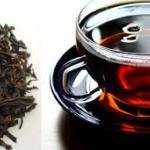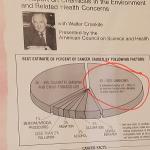It’s a persistent question — does it make any difference how one’s meals are distributed during the day? Research has suggested that, given the same caloric intake, when one eats really doesn’t affect one’s body weight.
Food & Nutrition
In the latest report on the topic, the National Center for Health Statistics (NCHS) paints a rather depressing picture of the status of the nation's obesity prevalence.
Every once in a while, the scientific literature offers up a gift to write about.
We often write about how one study says a diet or food is helpful followed in short turn by another review saying it has no effect or is even detrimental. What is a person to believe?
There are many who are devoted to black tea, not only for its strong, distinct flavor but also for its health benefits, both known and even perceived.
Decades ago, when activist groups were promoting every trace chemical they could find as a carcinogen (1), the American Council on Science and Health debunked a lot of those myths with the help of Walter Cronkite, the long-time CBS anchor who had
Researchers recently conducted a small study that showed promise for weight loss if you took part in a cheat day from your diet. Be careful, though, the plan can backfire.
When we think of a healthcare provider, the picture that most often comes to mind is of someone in a long white lab coat with a stethoscope slung around his or her neck.
For the extremely obese (i.e., those with a BMI over 40), the most effective means of losing weight and keeping it off is bariatric surgery — as we have di











